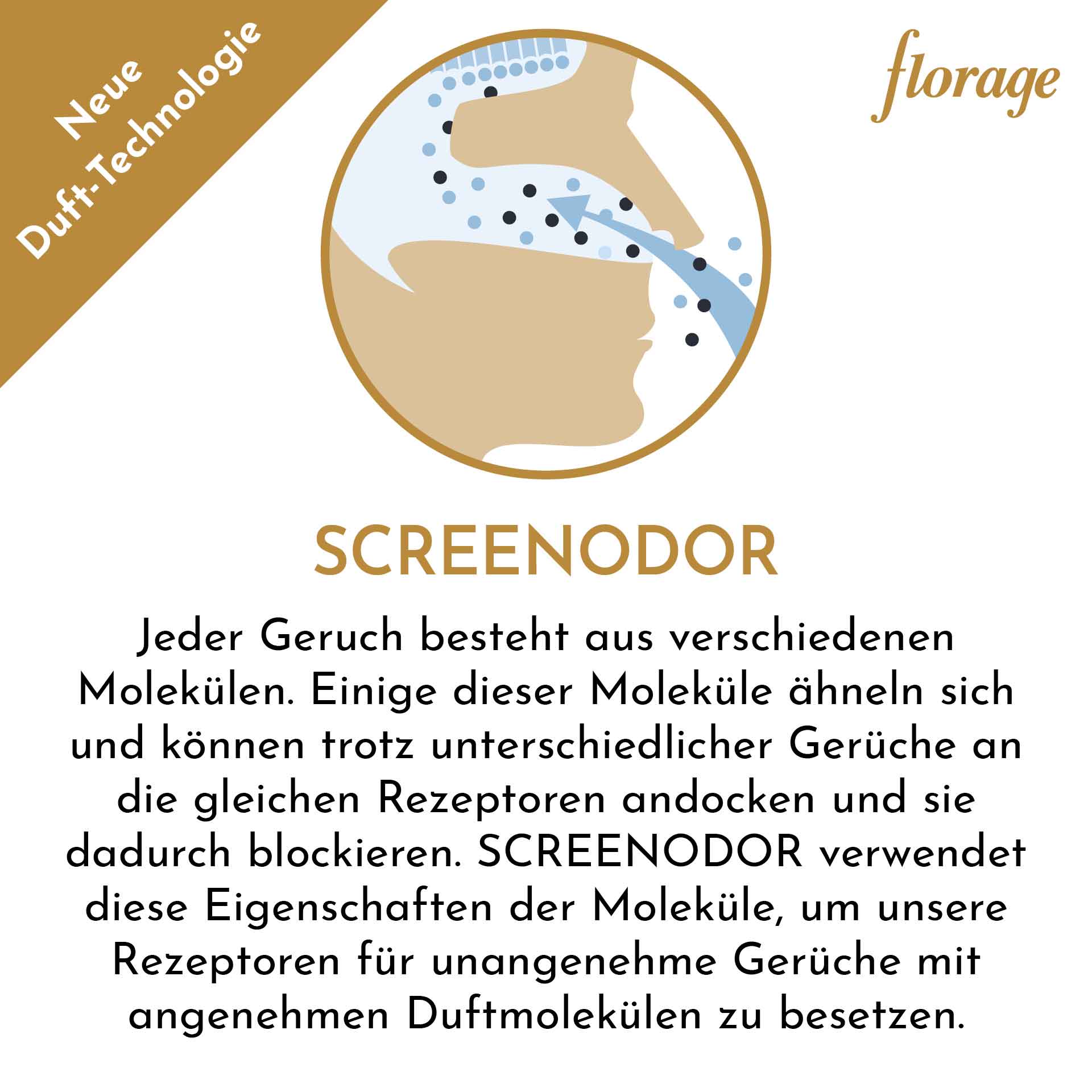Fragrance know how from the manufacturer
Interesting facts from the world of fragrances.
As a premium room fragrance manufacturer we have gained valuable experiences in composition, processing and bottling of scentend products and essences.
We gladly share our knowledge of fragrances with our customers explaining interesting facts and surprising details about the world of scents. Also, we present our product range as well as new and innovative products. If you have any questions please don’t hesitate to reach out to us at info@schreiber-essenzen.de. We are here to assist you!
The Schreiber Essenzen scent configurator helps you to create a customised product (white label production). Whether it’s a special bottle, a customised fragrance, or your own labels – we might offer the perfect individual solution for your business.
Wo bekomme ich als Privatperson florage Produkte
Sie sind kein Händler, interessieren sich jedoch für unsere Produkte? Dann können Sie unsere beliebtesten Saunadüfte sowie unsere Raumdüfte ganz bequem hier bei Amazon bestellen.
Screenodor
Science against unpleasant odours!
Introducing the Magic of Screenodor Technology:
Discover the Science behind Screenodor
Screenodor technology targets the human odor receptors that transmit unpleasant smells to the brain’s olfactory center. Certain scent molecules share a striking similarity in their chemical structure, including the type and number of atoms. Despite these structural similarities, they possess distinct olfactory qualities. However, due to their comparable molecular structure, they have the ability to bind to the same receptor types and block them. The Screenodor technology harnesses this effect by occupying the receptors for unpleasant scents with molecules that have pleasant fragrance qualities. This example showcases the astonishing diversity of scents, even when the molecular structure is almost identical.
As a premium manufacturer of room fragrances, Schreiber Essenzen GmbH & Co. KG takes pride in indulging your senses with our latest florage room fragrance products. Our unique scent compositions and high-quality essential oils create a cozy ambiance in our two room fragrance lines, Cosy Collection and Cosy Pure, guaranteeing a sense of well-being. Experience the enchanting world of florage Cosy and embrace the future of room fragrance technology with Screenodor!
Discover the enchantment of Screenodor technology for the first time in the florage room fragrances Cosy Collection “Juicy” and Cosy pure “Früchtetraum”. Immerse yourself in a fragrant paradise with products from the premium manufacturer of room scents and sauna fragrances, Schreiber Essenzen GmbH & Co. KG.
You can also try our new florage room sprays “Athlet”, “Denker”, and “Träumer”, as well as our Air florage room scent cans in a variety of delightful scents. Now available with insect repellent, Smell Protect, and Smoke Protect capabilities.
Also available in our Amazon Store.

CERTIFICATION
Quality Features Overview.
The legal standards
- IFR Association
- REACH
- GMP
- CLP
- EU Organic Regulation
- GFSI
The IFRA
International Fragrance Association, is an international organization established in 1973 with headquarters in Geneva, Switzerland. They focus on regulating and promoting the safety of fragrances through scientific research and collaboration within the industry. Setting standards and guidelines for the production and use of fragrances, IFRA aims to protect consumers’ health and the environment. Additionally, they advocate for responsible fragrance handling, fostering transparency and trust among manufacturers, consumers, and authorities.
The REACH Regulation
REACH (Registration, Evaluation, Authorisation and Restriction of Chemicals) is a European regulation that governs the handling of chemical substances. Implemented on June 1, 2007, its main aim is to enhance protection of human health and the environment. Applicable to all chemical substances, including those used in industrial processes and everyday products such as cleaning agents, paints, and clothing, REACH ensures that companies are accountable for the safe use of chemicals. This responsibility contributes to safeguarding consumers’ health and the environment, promoting transparency and trust within the chemical industry. Furthermore, the regulation encourages innovation by supporting safer alternatives to hazardous substances.
The GMP Guidelines
The GMP Guidelines, or Good Manufacturing Practice, are a set of regulations that ensure products are consistently manufactured and controlled according to quality standards. Crucial in the pharmaceutical, food, and cosmetic industries, GMP guidelines encompass aspects such as hygiene, controlled manufacturing processes, documentation and traceability, and quality control. Compliance with GMP guidelines minimizes the risk of contamination, mix-ups, and errors, ultimately protecting consumer health and strengthening trust in products.
The CLP Regulation
The CLP Regulation (EC) No 1272/2008, also known as the CLP Regulation (Classification, Labelling and Packaging), is a European regulation for the classification, labelling, and packaging of substances and mixtures. It came into force on 20 January 2009 with the aim of uniformly assessing and communicating the hazards posed by chemical substances. Based on the United Nations’ Globally Harmonised System (GHS), the CLP Regulation ensures that hazards from chemicals are uniformly classified and labelled within the European Union. It promotes the safe handling of chemicals and facilitates the free movement of goods within the EU by enhancing the clarity and comparability of safety information.
The GFSI
The Global Food Safety Initiative (GFSI) is an internationally recognized organization dedicated to enhancing food safety worldwide. Established in 2000, GFSI operates as part of the Consumer Goods Forum, a global network platform for retailers, manufacturers, and service providers in the consumer goods sector. The aim of GFSI is to harmonize food safety standards and increase efficiency and trust in the global food supply chain. GFSI significantly contributes to bolstering consumer confidence in food safety and reducing risks in the global food supply chain.
The EU Organic Regulation
The EU Organic Regulation sets standards for the ecological production and labelling of organic food in the European Union. It aims to promote sustainable agriculture, protect the environment, preserve biodiversity, and ensure high animal welfare standards. Key aspects include farming methods, animal husbandry, processing, monitoring, and certification. Products meeting these requirements can display the EU Organic logo, helping consumers easily identify organically produced food and giving them confidence in the products’ adherence to high ecological standards.
